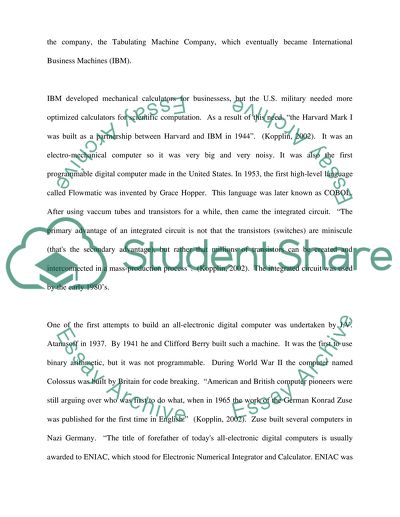Cite this document
(History of Computers and Its Impact on Society Essay, n.d.)
History of Computers and Its Impact on Society Essay. https://studentshare.org/technology/1509739-history-of-the-computer
History of Computers and Its Impact on Society Essay. https://studentshare.org/technology/1509739-history-of-the-computer
(History of Computers and Its Impact on Society Essay)
History of Computers and Its Impact on Society Essay. https://studentshare.org/technology/1509739-history-of-the-computer.
History of Computers and Its Impact on Society Essay. https://studentshare.org/technology/1509739-history-of-the-computer.
“History of Computers and Its Impact on Society Essay”. https://studentshare.org/technology/1509739-history-of-the-computer.


